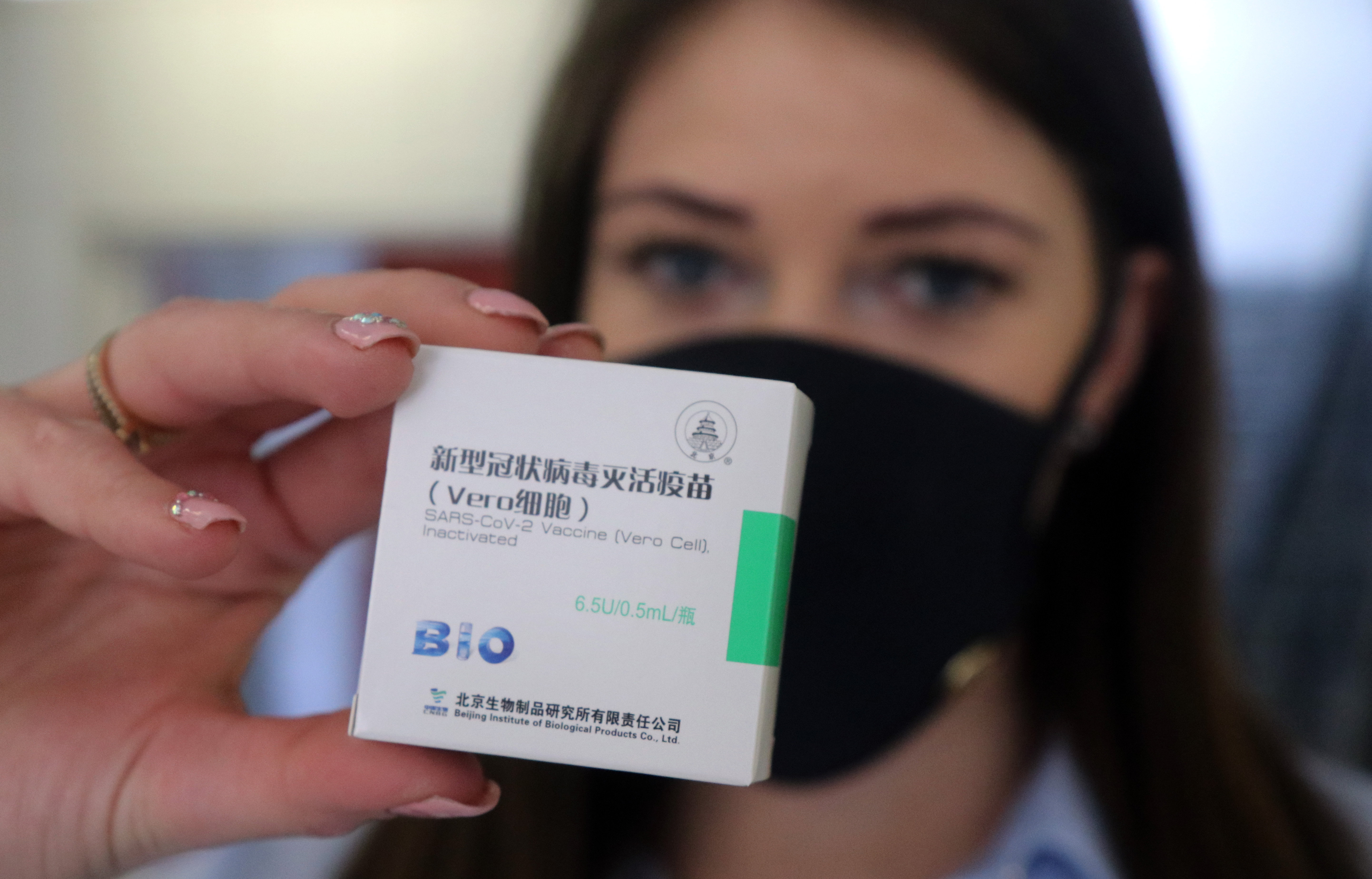European Commission launches legal actions against Hungary over LGBTQ policies
- Stay updated on the latest news from Hungary by signing up for the free InsightHungary newsletter:
The European Union's executive arm announced on Thursday that it would launch two separate infringement procedures against Hungary over policies that it says unlawfully violate the fundamental rights of LGBTQ people.
The first procedure concerns a law recently passed by Hungary's parliament that forbids the depiction or promotion of homosexuality and sex reassignment to minors under 18 - something the commission will argue violates the right to freedom of expression and information, as well as European directives governing media and commerce.
"Europe will never allow parts of our society to be stigmatised," the commission wrote in a Tweet on Thursday.
A second procedure was launched in response to a government office in January ordering a Hungarian publisher to place a disclaimer on books that "display patterns of behavior that differ from traditional gender roles." That order came after the publisher, Labrisz, released a collection of fairy tales featuring LGBTQ and non-white characters.
The requirement equates to restricting the right to freedom of expression and the right to non-discrimination, the commission wrote, adding that both laws violate human dignity and the right to respect of private life.
According to a press release, Hungary's government has two months to respond to the arguments put forward by the commission. If it does not, the Commission may decide to send them a reasoned opinion and refer them to the Court of Justice of the European Union, it wrote.
"Hungary restricts the freedom of expression of authors and book publishers, and discriminates on grounds of sexual orientation in an unjustified way. In particular, Hungary failed to justify the restriction of these fundamental rights, nor has it provided any justification as to why exposure of children to LGBTIQ content would be detrimental to their well-being or not in line with the best interests of the child," the commission wrote.
A poll released this week by Zavecz Research showed that 56 percent of Hungarians accept homosexuality, with women (62 percent) being more accepting than men (48 percent).
Only 38 percent of those over 60 years of age said they "support those living in non-heterosexual relationships," while those living in villages were found to be less accepting than those in cities.
Nearly a quarter of respondents in the 1,000-person representative survey reported personally knowing someone that is homosexual.
Orbán to announce whether third vaccine dose will be offered
Prime Minister Viktor Orbán is expected to respond on Friday to multiplying reports that the Chinese-produced Sinopharm Covid-19 vaccine does not produce sufficient antibodies in some elderly recipients.
Calls for the government to provide a third vaccine dose to some individuals reached new proportions this week after the results of two testing programs were released showing lower antibody response in some recipients of the Sinopharm vaccine.
At a press conference on Thursday, Orbán's chief of staff, Gergely Gulyás, said the government and Emergency Task Force had discussed the possibility of providing a third vaccine dose, but did not provide details.
On Tuesday, the city of Budapest released initial results of a free antibody testing campaign it launched for elderly residents. The voluntary, non-representative sample examined 1,760 tests.
"In the case of those over 60 years of age who participated in the test and reported receiving the Sinopharm vaccine, 23.90 percent had insufficient levels of IgG-type neutralizing antibodies in their bloodstream," the city wrote in a statement. "For other vaccines, the proportion of those who do not have adequate antibody levels is significantly lower. ”
The following day, Semmelweis University released data showing that Sinopharm recipients produced antibodies in fewer patients than among recipients of any other vaccine.
Of the 1,195 applicants who had previously tested negative for antibodies, 88 percent showed positive results in the Semmelweis test.
“Based on the rate of positive results, all five two-dose vaccines can effectively induce antibody production,” the university wrote.
However, of the 881 tests administered to Sinopharm recipients, 143 produced negative antibody results, a rate of 84 percent effectiveness at producing antibodies. This gave Sinopharm a 10% lower rate of antibody efficacy than Moderna, the next vaccine in line, with 94 percent.
Furthermore, 18 percent of subjects over 60 years of age did not produce antibodies after receiving Sinopharm, also the lowest among all other vaccines.
On Thursday, Gulyás rejected claims that certain vaccines in Hungary are less effective, and argued that other kinds of protection can develop even if antibodies do not.
In a radio interview this week, Minister of Human Resources Miklós Kásler said there is data to suggest that a booster vaccine with a heterologous vaccine, i.e. with a different type of vaccine than received in the first two doses, dramatically increases protection.
Kásler said it is advisable to provide a third vaccine shot after six months, primarily to those over 60. He said the government would soon provide detailed guidance on possible third doses.
Immunologist Anna Erdei, Deputy Secretary General of the Hungarian Academy of Sciences, said in an interview this week that “it is now clear that about one-third of people over 60 vaccinated with the Sinopharm vaccine do not have antibodies."
Erdei pointed out that the vaccine's Chinese manufacturer only recommended the vaccine to people under 59 "because no studies have been performed on the elderly."
“As an immunologist, I dare say that if there are no antibodies in one's body, there is no protection," Erdei said, adding that she urges a centralized antibody testing campaign to determine the level of protection of vaccinated individuals.
Hungarian government makes offer to purchase Budapest Airport
Hungary's government has made a non-binding offer to purchase the Budapest International Airport, the facility's largest stakeholder confirmed to Reuters, the next step in the government's effort to nationalize the regional hub.
The offer was delivered to Budapest Airport Zrt. by Innovation and Technology minister László Palkovics last week, but press reports indicated that the company considered it to be below market value. Still, it did not insist as it has before that it does not intend to sell the airport.
AviAlliance, a Germany-based airport operator and Budapest Airport's largest stakeholder, said it had not solicited the offer from the government, and that it hoped to retain a long-term investment stake in the facility.
“We can confirm that the Hungarian government has made a non-binding offer to the shareholders of Budapest Airport. For the sake of our co-owners and for legal reasons, we are obliged to consider possible offers,” AviAlliance said in an email to Reuters.
On Thursday, the prime minister's chief of staff Gergely Gulyás said that the government's goal was to bring the airport "under the ownership of the state, or at least Hungarian ownership," adding that it was a matter of "national security."
Szijjártó: Hungary to allow more foreign workers at international companies
Foreign Minister Péter Szijjártó on Wednesday announced that international companies would be permitted to employ foreign citizens representing up to 20 percent of their workforce, up from a previous 10 percent limit.
In a video on Facebook, Szijjártó said the increase would encourage companies to continue investing and expanding in Hungary and prevent them from leaving the country, preserving jobs for Hungarians.
"Giving the opportunity for foreign-owned companies to raise the number of their foreign employees from 10 to 20 percent gives us the ability to ensure jobs for Hungarian workers," he said.
Szijjártó announced several other economic measures following a government cabinet meeting Wednesday.
- The state will support a Hungarian construction material production company with HUF 5.5 billion (€15.3 million) in an effort to bring down the increasing prices of building materials.
- Hungary's Eximbank will provide preferential investment loans to Hungarian companies worth HUF 100 billion (€278 million), with the interest rate for SMEs set at 0.1 percent.
- A development and investment loan program will be launched for micro-companies, of which there are some 4,000 in Hungary. A micro-loan program will also provide HUF 50 billion (€139 million) over the next ten years with interest rates of 0.5 percent.
- The government will introduce a uniform tendering process, reducing the preliminary investigation period for tenders from one month to five days.
- The government will provide location-finding services for companies wishing to invest in Hungary, allowing them to quickly find favorable sites for their investments.
- Hungary's Eximbank will hold a €400 million agricultural land capital fund to ensure a stable supply of raw food materials.




